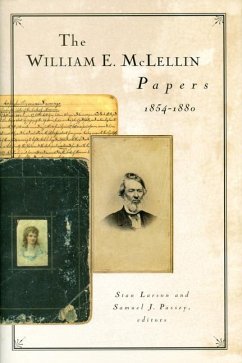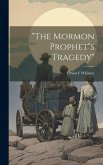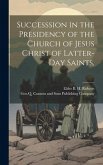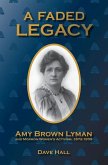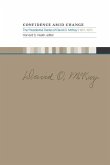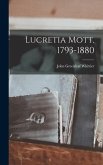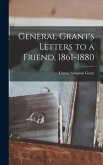During his long life, William E. McLellin moved from one Mormon faction to another, searching for truth but sympathizing with dissenters in each new group. In fact, he was a genuine, if illtempered, intellectual among Joseph Smith's less academically oriented original twelve apostles, and his writings illuminate the founding period of Mormonism. Ironically, the items in this compilation were discovered because document forger Mark Hofmann claimed to have found "apple crates full" of such material. In fact, Hofmann had found nothing, but the publicity surrounding his claim led to the discovery of the McLellin papers. The collection is introduced and contextualized by the editors and contributors, including former RLDS Church Historian Richard P. Howard, Salt Lake Tribune reporter Dawn House, Brigham Young University Professor Thomas G. Alexander, and AHA award-winning historian D. Michael Quinn.
The LDS hierarchy was divided in 1837 over the militarization of the church in Missouri. Many in the leadership eventually reconciled, but one of the twelve apostles, William E. McLellin, became what might be termed a friendly critic. He retained his belief in the divinity of the Book of Mormon and kept in contact with former colleagues in the Quorum of the Twelve but could not support the new policies and directions. He resigned from the quorum in 1836 and was excommunicated in 1838. Most interesting for readers of the present volume may be McLellin's observations about how the church changed during his separation. McLellin said that in his five years of activity in the church, he never once heard of Joseph Smith's First Vision. Available historical evidence confirms that the First Vision was not known in the church until the 1840s, after McLellin's departure.
Hinweis: Dieser Artikel kann nur an eine deutsche Lieferadresse ausgeliefert werden.
The LDS hierarchy was divided in 1837 over the militarization of the church in Missouri. Many in the leadership eventually reconciled, but one of the twelve apostles, William E. McLellin, became what might be termed a friendly critic. He retained his belief in the divinity of the Book of Mormon and kept in contact with former colleagues in the Quorum of the Twelve but could not support the new policies and directions. He resigned from the quorum in 1836 and was excommunicated in 1838. Most interesting for readers of the present volume may be McLellin's observations about how the church changed during his separation. McLellin said that in his five years of activity in the church, he never once heard of Joseph Smith's First Vision. Available historical evidence confirms that the First Vision was not known in the church until the 1840s, after McLellin's departure.
Hinweis: Dieser Artikel kann nur an eine deutsche Lieferadresse ausgeliefert werden.

